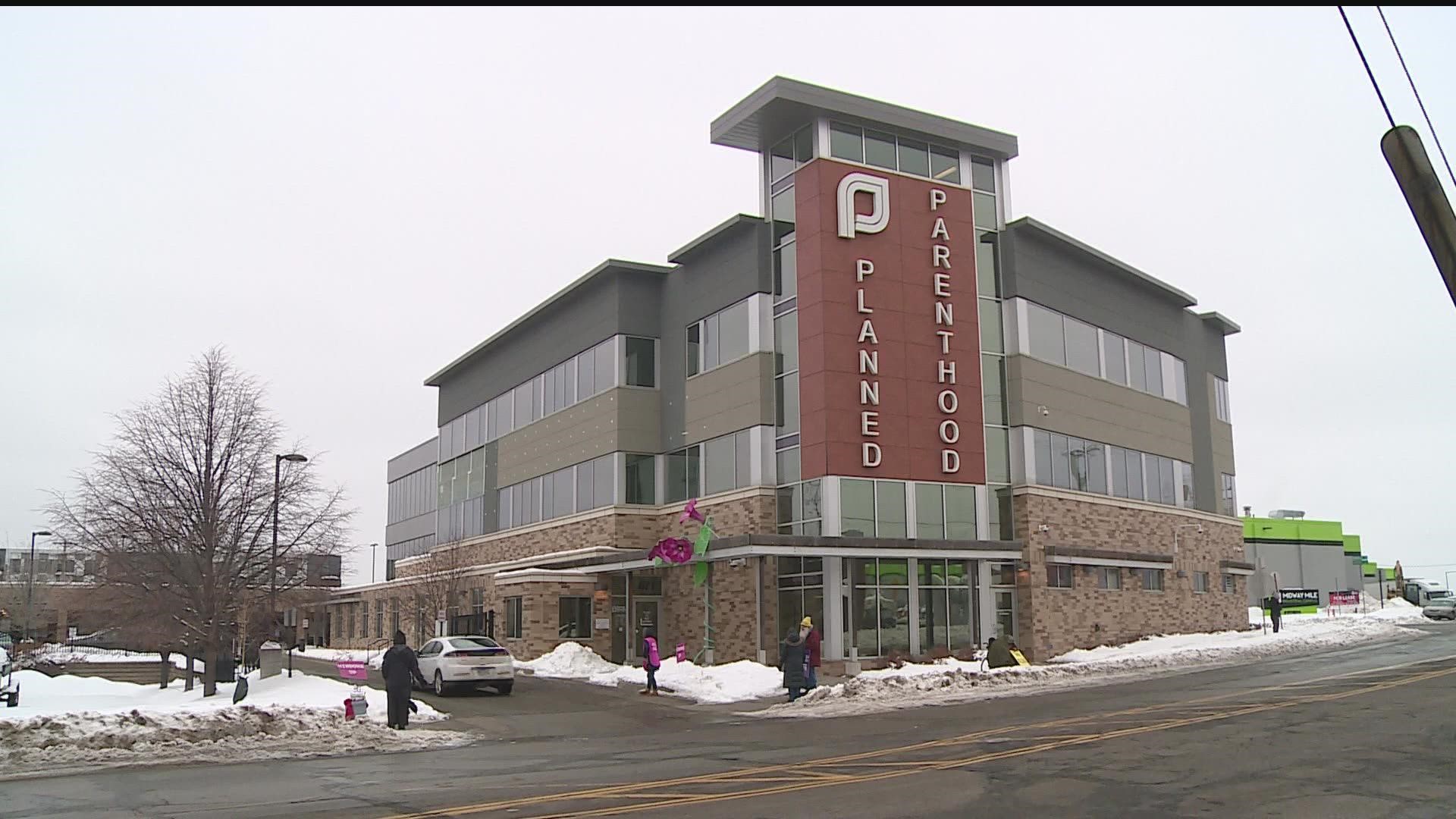ST PAUL, Minn. — The House Health Committee Thursday approved a bill that would remove abortion restrictions on from Minnesota statutes, after a hearing that featured a sharp partisan divide over the issue.
A Ramsey County judge last summer ruled many of those restrictions violated the state’s constitution, but Rep. Tina Liebling wants to remove them from state law too.
“All of this together makes abortion access more difficult, and it puts abortion providers on the defensive, and I believe a lot of them are there for that very reason,” Rep. Liebling, a Rochester Democrat, told KARE.
“They tell physicians to do something they already would do, so they’re really there to make hoops for abortion providers to jump through and make them nervous.”
Liebling’s bill, if it were to become law, would erase dozens of provisions that lawmakers added to state laws since the 1973 Roe v Wade decision barred states from banning abortion outright. Key restrictions that would be repealed include the following:
- Underage patients must notify both parents before they can receive an abortion
- A 24-hour waiting period between contacting an abortion provider and receiving one
- Providers must give patients a controversial warning about possible cancer links to abortion
- Second trimester abortions can only occur in hospital settings
- Only physicians can provide abortions.
- Abortion providers must collect health history from patients to report to as aggregate data to the Minn. Dept. of Health
Republicans on the committee challenged the reasoning behind Democrats’ effort.
“So, what we’re saying really is that instead of having any laws, we should have no laws,” Rep. Anne Neu Brindley of North Branch told Liebling.
Liebling responded that there are already other laws on the books that protect patients from medical malpractice.
“We’re saying this is health care, and that these are individual decisions, private decisions of Minnesotans.”
After the US Supreme Court struck down Roe v. Wade last year, abortion remained legal in Minnesota because of a 1995 Minnesota Supreme Court decision in the case of Doe v Gomez. DFL majorities in the House and Senate are currently trying to codify the Doe v Gomez ruling with the Protect Reproductive Options Act, which is House File 1 and Senate File 1.
Gender Justice and other groups filed the case of Doe v Minnesota in 2019, challenging Minnesota’s restrictions. They prevailed in July, when Ramsey County District Judge Thomas Gilligan Jr. threw out those regulations, saying they violate the Minnesota Constitution.
Attorney General Keith Ellison, in his capacity as the civil lawyer for the state agencies that were named defendants in the case, said it would be pointless to appeal given the legal precedents cited by Gilligan. Abortion opponents haven’t given up on the case.
“We keep saying this is unconstitutional. We do not know that. It did not go to the Supreme Court,” Rep. Deborah Kiel, a Crookston Republican, said in Thursday’s hearing.
“This is just so frustrating. My heart just screams over the sadness of what we are doing.”
Among those who testified in support of the bill was Emily Richter, who said she had to receive an abortion after an ultrasound revealed that her baby would’ve live after birth. She said the 24-hour waiting period added unnecessary stress at a time when she was at risk of suffering a hemorrhage.
“After finding out our baby was incompatible with life outside the womb, I had to wait 24 hours to think about my decision and consider all my options, of which there were none,” Richter told the committee.
Cathy Blaeser of Minnesota Citizens Concerned for Life, the oldest and largest abortion opposition group in the state, complained that Liebling’s bill would also repeal the “Born Alive Act” which requires physicians to save the life of a baby born alive during an abortion procedure.
“This bill would appallingly repeal existing law which protects the life of an infant born alive.”
Rep. Neu Brindley offered an amendment to keep that language in the law.
“It is absolutely shocking to me that we are having this discussion. Now we are saying even if a baby is born alive that, that child also should not live!”
Liebling said repealing that part of state law wouldn’t remove a doctor’s professional responsibility to provide life-saving care to patients.
“What you’re saying is a lie! It is demonizing doctors who perform abortions. And to say there are no protections in Minnesota law for infants who are alive is absolutely untrue!”
According to the annual report from the Minnesota Department of Health, women’s clinics reported five live births among the 10,000-plus abortions performed in 2021.
In one case the clinic reported the baby died shortly after birth due to fetal abnormalities. In two cases clinics reported giving comfort care until the babies died. In two other cases the infants were considered "previable" which generally means unlikely to survive outside the womb, and were not treated.
The panel approved the bill on a straight party line vote, sending it to the House Judiciary Committee for its next hearing.
As Liebling was collecting her notes to leave the hearing room, she was confronted by Michele Even of Minnesota Right to Life.
“You’re lying! You lied before all these people here today, Tina!” Even declared, as she recorded cell phone video of Liebling.
“That’s what they do to third trimester babies. They are burning third trimester babies in the womb!”
The lawmakers shot back, “You’re lying. That’s bull s—t! That’s lying, inflammatory bull s—t!”

